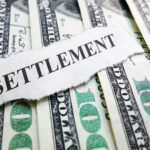Florida’s tourism and hospitality industry should reopen from the coronavirus pandemic slowly, focusing first on getting residents to take in-state vacations before branching out to domestic and international travelers, a business subcommittee charged with making recommendations was told Tuesday.
Florida’s No. 1 industry has crashed since mid-March when the state’s theme parks and other attractions began closing, with hotels seeing a drop in revenue of $1.6 billion over the last six weeks compared to last year, said Dana Young, head of Visit Florida, the state’s tourism bureau. Domestic air travel to the state is down 65% and international air travel is down 80% compared to last year, she said on the committee’s conference call.
She and others said bringing those numbers back will require showing people it is safe to travel and visit restaurants and other crowded facilities by adopting practices aimed at preventing the virus’s spread, including stringent cleaning and employee safeguards. She said those steps must be done methodically and only when medical professionals say it is safe to proceed.
“Florida eased into the stay-at-home order and now our job is to look at how to appropriately ease out,” she said. She said her organization’s first advertising campaign would be aimed at Florida residents, exhorting them to visit the state’s attractions when they begin venturing back into the world.
“Our marketing will aim to invoke a sense of Florida pride,” she said.
The subcommittee is reporting to an executive committee composed of some of the state’s most powerful political and business leaders, which Gov. Ron DeSantis appointed Monday. He asked it to prepare recommendations by Friday for reopening the state. The executive committee is meeting daily by phone.
DeSantis told the hospitality subcommittee that while their businesses might be deemed non-essential and were closed or heavily restricted, they are essential to the state’s long-term economic health and they must be reopened as soon as possible. He said if supermarkets can operate with restrictions, so could other indoor businesses that attract crowds.
“If people can fight over toilet paper at Costco, then I think there is a way you can run a restaurant safely,” the Republican governor said.
Restaurant executives told the group that fully reopening won’t be simply unlocking doors and turning on lights. Florida restaurants have been restricted to takeout and delivery service for about a month and their staffs and supplies are depleted.
Tim Petrillo, CEO of The Restaurant People, which operates 70 eateries under various names, told the group suppliers will struggle to meet demand as reopening restaurants place large orders simultaneously. He said getting employees back will also be difficult _ his company has laid off 95% of its workers and many have moved away.
There will be dining room issues. Will restaurants be limited to 50% capacity, must they keep diners apart and will there be different rules for outdoor seating? Will masks and gloves for servers and disposable menus be required and how will such rules be enforced? It must be uniform statewide, Petrillo said.
“The clearer direction we can give to all establishments will be better for the industry so we don’t have some people not doing enough and other people going overboard,” he said.
Jose Cil, CEO of Restaurant Brands International, which owns Burger King, Popeyes and Tim Hortons, told the group his in-restaurant employees are individually screened daily, answering health questions and their temperatures taken. Managers must keep a log.
He said the company is now granting 14 days paid leave to hourly employees exhibiting COVID-19 symptoms, “given the importance of folks taking this seriously and not scrambling to go to work even if they are feeling ill.” Low-rung fast-food workers typically don’t get paid sick days.
Hotel and resort executives told the group they need to assure the public that returning to their tight, highly trafficked facilities is safe and that plans for phasing back in outdoor activities like tennis and golf differ from indoor pursuits like massages.
Philip Goldfarb, who runs Miami Beach’s Fontainebleau Resort and other properties, said his rooms are being sprayed with hospital-grade disinfectant between guests and other commitments are being made to make sure the virus doesn’t spread.
“We want to illustrate to our customers and our employees that we are taking this very serious,” he said.
Topics Florida
Was this article valuable?
Here are more articles you may enjoy.


 Carnival Puts Miami Headquarters Up for Sale as Florida Real Estate Soars
Carnival Puts Miami Headquarters Up for Sale as Florida Real Estate Soars  AIG Sues Newly Launched Dellwood Insurance and Its Founders
AIG Sues Newly Launched Dellwood Insurance and Its Founders  JPMorgan Client Who Lost $50 Million Fortune Faces Court Setback
JPMorgan Client Who Lost $50 Million Fortune Faces Court Setback  Undercover St. Louis Officer Beaten by Colleagues Awarded $23.5M
Undercover St. Louis Officer Beaten by Colleagues Awarded $23.5M 

